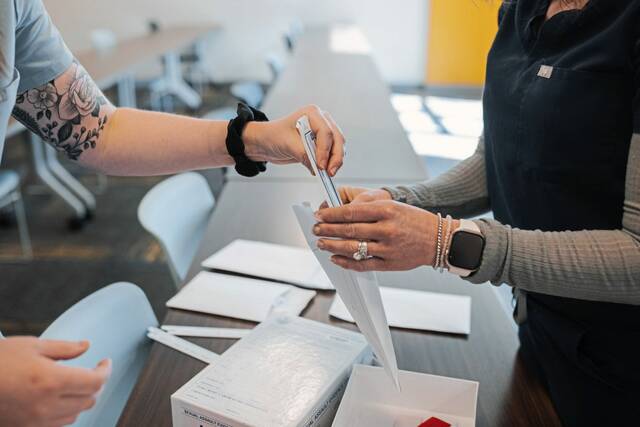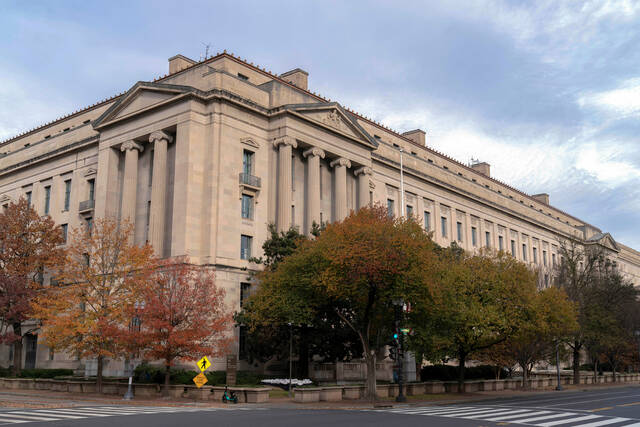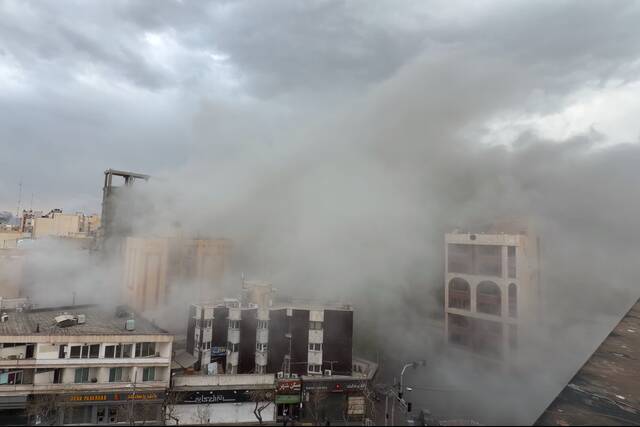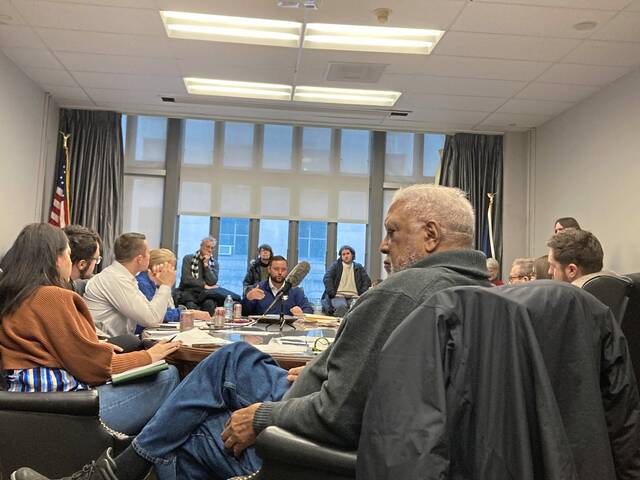An audit of the Pittsburgh Bureau of Police meant to address concerns about racial disparities found that Black residents continue to make up a majority of arrests by city police and seem to be disproportionately hit with marijuana-related arrests despite the city’s decriminalization of small amounts years ago.
The audit, which came in the aftermath of the murder of George Floyd by a Minneapolis police officer in May 2020, also suggests officials implement policies barring employees’ participation in or affiliation with hate groups or paramilitary groups.
Controller Michael Lamb addressed the audit Tuesday alongside Beth Pittinger, director of the Citizens Police Review Board.
Lamb called the audit, which includes 23 recommendations, thought-provoking and potentially controversial to some.
Marijuana possession made up just over 40% of all drug charges by Pittsburgh police in 2020, and Black individuals made up 85% of marijuana arrests.
The audit found that in the 139 instances in 2020 when possession of marijuana was the only charge, 90% of those who were arrested of state charges instead of receiving a summary citation were Black.
“That can’t be right,” Lamb said. “That shows the need for change. That shows an inequity.”
Possession of a small amount of marijuana was decriminalized by the city in 2016, though it remains illegal under state and federal law. That means officers in the city have leeway in filing — or not filing — charges.
“We’ve left it to the discretion of police officers how to charge, and what’ we’ve found is that when that happens, they are typically charging African Americans more strictly than they would otherwise,” Lamb said. “That’s a problem.”
Black residents also made up the majority of arrests overall — of 7,872 arrests in 2020, 65.3% were of Black people, according to the audit. Less than one quarter of the city’s population is Black.
“These numbers show how much work we have ahead of us if we’re going to achieve equity for our Black communities in particular,” Pittinger said. “We’re looking forward to continuing conversations with the bureau (of police), the mayor and city council about approaches that can bring down these disparities while reinvesting in communities that have been historically oppressed.”
A November 2020 memo city officers suggested that, if the sole charge is possession of a small amount of marijuana or smoking marijuana in public, officers should issue a citation so long as the person has proper identification on them and has no outstanding warrants.
The audit suggested the city continue to follow the guidelines from that memo, and police brass, in their response to the audit, agreed.
“Prosecution for cases where a small amount of marijuana is the only charge is handled at the magistrate level as either a summary disorderly conduct or violation of city ordinance,” the response read. “The bureau encourages the mayor and city council to contact the (state) legislature to consider changing the statute to make this charge a summary violation.”
The audit also gave strong recommendations regarding affiliation with hate groups and paramilitary groups by public safety employees. The recommendation suggests working with the law department to establish “a clear policy against current and future employee affiliations with hate groups or paramilitary groups.”
It also recommended random checks by employees in the Office of Municipal Investigations of active-duty officers’ social media accounts.
“The monitoring of social media for our officers is something that has to happen and has to continue or at least be more thorough than what we’ve seen so far,” Lamb said.
Pittinger said she’s aware of some “questionable relationships with some known hate groups.”
“Also, it’s not unusual to find a posting that may be just plain nasty or rude or discourteous or very unbecoming posted by a known officer against some civilian or a citizen,” she said. “Screening in the course of their employment is a check and balance to ensuring that the standards are being upheld.”
Other recommendations revolve around better access to more detailed data, technological upgrades, reallocation of resources across the six police zones, and improvements to body-worn camera practices.
“There’s no doubt our officers should be commended for the hard work they do every day,” Lamb said of the police force. “But there are relatively simple steps the bureau can take to ensure that problematic officers are kept off the streets and that all of our residents are treated fairly without prejudice.”








